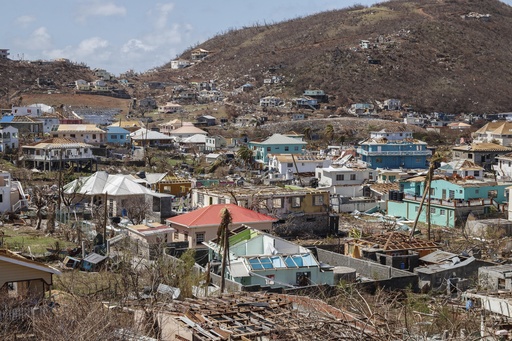
BAKU, Azerbaijan — As the annual United Nations climate conference kicked off on Monday, there existed a stark contrast between fervent speeches and the pressing issues tied to vast political shifts, ongoing global conflicts, and economic challenges. The first major topic addressed was financing, which is crucial to the discussions at COP29, taking place in the historically significant city of Baku, where the first oil well in the world was drilled. The two-week conference is focused on negotiations surrounding the immense financial commitments that rich countries are expected to make — likely totaling hundreds of billions or even trillions of dollars annually — to aid developing nations in combating and adapting to the effects of climate change.
The funding aims to assist poorer nations in moving away from fossil fuels, which contribute to climate change, and towards renewable energy sources. It will also serve to help these countries recover from climate-related disasters, primarily caused by emissions from wealthier countries, and to prepare for future extreme weather events. Mukhtar Babayev, the new COP29 president, remarked on the necessity of these financial contributions, emphasizing, “These numbers may sound big but they are nothing compared to the cost of inaction.” He highlighted that this conference could define the future of the Paris Agreement, originally established in 2015 with an objective to limit global temperature rise to 1.5 degrees Celsius (or 2.7 degrees Fahrenheit) compared to pre-industrial levels.
Currently, the world is approaching this temperature limit, and data recently published by the European climate service Copernicus indicated that we might be on track to experience the hottest year yet recorded. Although the 1.5 degrees Celsius goal represents a long-term target, the urgency of combating climate change remains greater than ever as evident through the impacts of recent extreme weather events.
Babayev underscored the existence of climate disasters, including hurricanes, droughts, and floods, stating that “We are on the road to ruin.” He emphasized the urgency for decisive action to meet the needs of those suffering from climate change, asserting that merely expressing compassion is insufficient. He declared COP29 a pivotal moment to carve a new path forward.
The urgency of the circumstances was further illustrated by United Nations Climate Secretary Simon Stiell, who shared the story of his neighbor, an 85-year-old woman named Florence, who faced adversity following Hurricane Beryl. Her resilience serves as a metaphor for the global fight against climate change, with Stiell insisting that climate financing should not be viewed as an act of charity but as a necessity in the self-interest of all nations, especially wealthier ones. He noted that failing to address this issue could see global temperature increases reaching alarming levels.
In the backdrop to these discussions lies a climate of political unrest, as countries around the world are grappling with upheaval. The shifts in leadership in major carbon-emitting nations, like the United States and Germany, are altering the dynamics of negotiations. Organizers had hoped for a unified global front during the talks, yet ongoing conflicts in Ukraine, Gaza, and other regions persistently overshadow these ambitions.
Nevertheless, there remains a spirit of hope among attendees. Jacob Johns, a community organizer representing Indigenous peoples, emphasized the potential for regeneration and collective action regarding climate change, reminding participants that our identity transcends national borders, and we are stewards of the Earth.
A robust financial agreement is crucial this year as nations prepare to submit updated and enhanced targets for reducing greenhouse gas emissions by early next year. This aligns with the commitments established in the 2015 Paris agreement, which emphasized the importance of enhancing efforts every five years. The current global average temperature has already risen 1.3 degrees Celsius (or 2.3 degrees Fahrenheit) since the pre-industrial era, indicating that further urgent action is necessary to keep emissions in check.
A recent United Nations report indicated that to prevent exceeding a 1.5 degrees Celsius increase, global carbon emissions must be reduced by 42% by the year 2030. Stiell voiced the necessity for substantial outcomes from COP29, insisting that now is the time to demonstrate that global cooperation can thrive despite the challenges faced. “Now is the time to show that global cooperation is not down for the count. It is rising to the moment,” he asserted.
